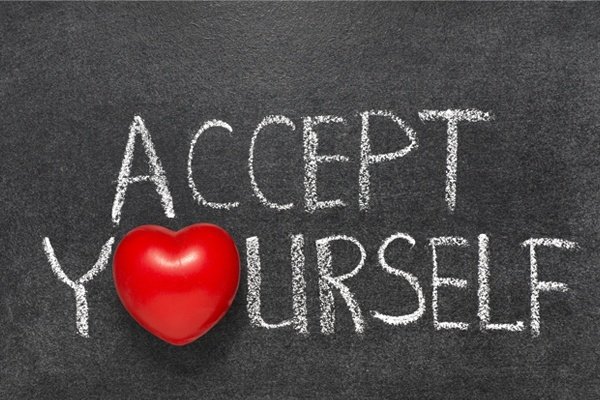Self-acceptance is one of the most important things you can do for your happiness. When you accept yourself, flaws and all, you allow yourself to be happy in the present moment. You don’t have to wait until you lose weight, get a new job, or find someone to love you. You can be happy now, just as you are. In this blog post, we will discuss the importance of self-acceptance and how to achieve it.
Contents
- 1 What Is Self-Acceptance?
- 2 Types of Self-Acceptance
- 3 Stages of Self-Acceptance
- 4 Different Techniques of Self-Acceptance
- 4.1 Set Goals
- 4.2 Celebrate Accomplishments No Matter How Small
- 4.3 Affirmations / Positive Self Talk
- 4.4 Practice Mindfulness or Meditation
- 4.5 Seek Professional Help
- 4.6 Practice Gratitude
- 4.7 Be Kind
- 4.8 Give Yourself Permission
- 4.9 Try To Plan For Future
- 4.10 Learn How To Forgive Others
- 4.11 Make Peace With Past
- 4.12 Let Go of Things
- 4.13 Embrace Change
- 5 Benefits of Self-Acceptance
- 6 Conclusion
- 7 A Word From Therapy Mantra
What Is Self-Acceptance?
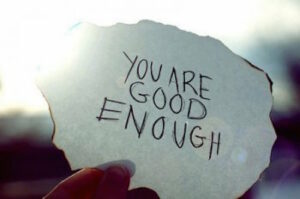 Self-Acceptance is an acceptance of who you are. It is a positive mindset and the ability to accept yourself for all that you are, including both your strengths and weaknesses. Self-acceptance encompasses more than just self-esteem or confidence; it’s about knowing your worth based on what you offer as a whole person.
Self-Acceptance is an acceptance of who you are. It is a positive mindset and the ability to accept yourself for all that you are, including both your strengths and weaknesses. Self-acceptance encompasses more than just self-esteem or confidence; it’s about knowing your worth based on what you offer as a whole person.
Self-acceptance leads to happiness because when we love ourselves unconditionally, we become free from chasing external validation which brings true happiness. It also allows us to live more authentically and be at peace with who we are. There can be many challenges to self-acceptance, but with time and practice, it’s possible to develop a more positive relationship with yourself.
Types of Self-Acceptance
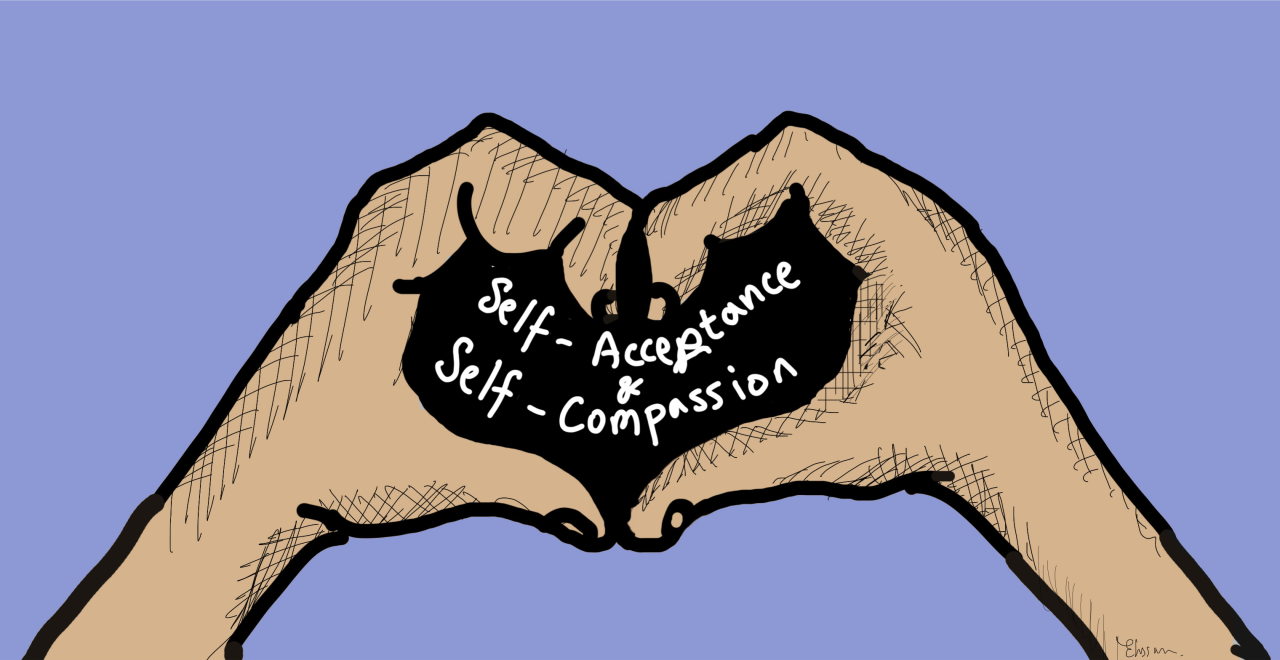
There are many different types of self-acceptance. The most important type is unconditional self-acceptance, which means accepting yourself completely and without reserve. This includes your good points and your bad points, the things you like about yourself, and the things you don’t like about yourself.
Other types of self-acceptance include:
Accepting Your Feelings
Accepting your feelings means not only being aware of your feelings but also allowing and accepting them without judging yourself. For example, if you feel sad or angry, it is okay to express these emotions in a healthy way.
Accepting the Way You Look
Everyone has physical features they like about themselves (their eyes) and features they don’t like about themselves (their nose). It’s normal for people to wish that some things could be different about their appearance, but when physical self-criticism becomes obsessive or interferes with daily life then it can become a problem. Accepting the way you look means not trying to change every aspect of your appearance so that you measure up to some idealized image of beauty.
Accepting Your Abilities and Limitations
No one is perfect, and everyone has strengths and weaknesses. Accepting your abilities and limitations means recognizing that you are not good at everything and that’s okay. It also means being willing to try new things even if you’re not confident about your ability to do them. For example, a person who is shy might decide to join a social group even though they are afraid of meeting new people because they know that it will help them grow as a person.
Accepting Your Past
Sometimes there can be things in our past that we’re not proud of. Accepting your past means recognizing that those things happened, but they don’t have to define who you are today. You can learn and grow from your experiences, even the bad ones. It also gives an opportunity for forgiveness, both to yourself and others.
Accepting Your Flaws
Everyone has flaws, whether it’s a physical or personality trait that we don’t like about ourselves. The key is not trying to change these traits but rather accepting them as part of who you are as an individual person with unique abilities and talents that make us special! It also helps in developing self-compassion because there will always be something wrong no matter how much time goes by so focusing on what is right instead makes life more enjoyable overall.
Stages of Self-Acceptance
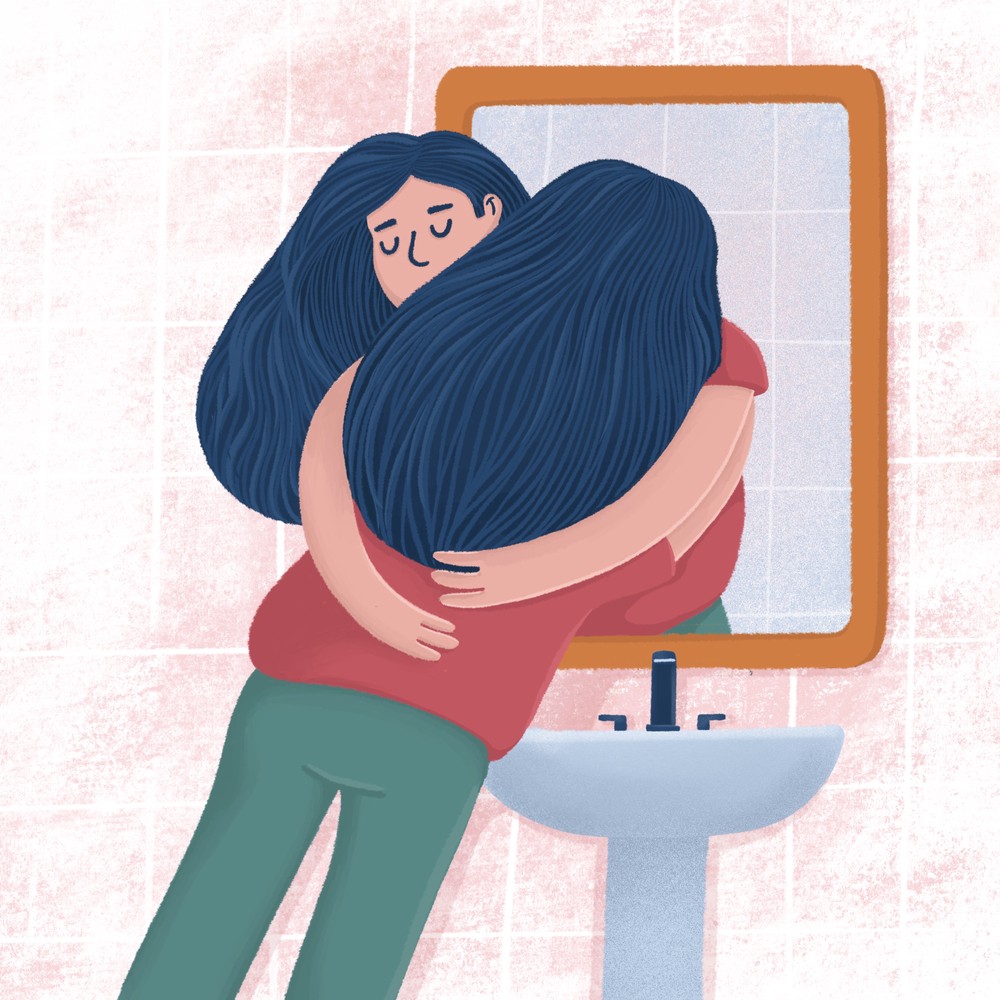
Accepting yourself doesn’t happen overnight. It takes time and effort, but the process can be broken down into stages of self-acceptance that make it easier to understand how a person might move from one stage to another over many years or even decades.
Stage One: Self-Denial
This is where most people start out in their journey towards self-acceptance because they don’t want anyone else telling them what’s wrong with them! The first step for anyone who wants to change his/her life around requires some level of awareness about themselves as an individual person before starting any kind of therapeutic work on this issue (i.e., counseling).
Stage Two: Self-Evaluation
At this point, you’re starting to accept that there are some negative things about yourself and maybe even a few positive ones too! But don’t get discouraged or overwhelmed with all the work ahead because it will take time before you see any real progress towards changing these issues in your life for good.
Stage Three: Self-Awareness
This stage can be difficult at first but eventually becomes easier over time as your self-evaluation skills improve from practicing them daily through various activities (e.g., journaling). You might still feel like nothing has changed since starting this process though so hang on tight because it’s only going to get better after each session until reaching full acceptance of who you really are inside out!
Stage Four: Acceptance
At, an individual has fully accepted themselves for who they are and all their flaws. This doesn’t mean that they don’t want to change anything about themselves but rather, they have reached a point where they can live peacefully with themselves knowing that there’s nothing wrong with them. From this stage onwards, it becomes much easier to work on making positive changes in your life because you already have a strong foundation to build off.
Different Techniques of Self-Acceptance
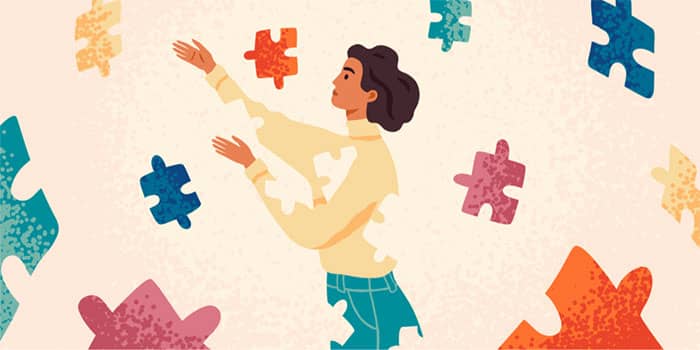
There are many different techniques of self-acceptance. Some of these are:
Set Goals
Sometimes setting goals is a step to self-acceptance. This is because it allows you to see what you have accomplished and how far you have come, despite any negative thoughts or feelings you may have about yourself. This also allows you to see that you are capable of change and growth. It also allows you to see your strengths and acknowledge them, while also identifying areas that need improvement. Be realistic when setting goals; do not set the bar too high or it will be difficult to feel a sense of accomplishment.
Celebrate Accomplishments No Matter How Small
It is important to celebrate accomplishments no matter how small they are because if you do not then it may feel as though nothing ever goes right for you. Negative thoughts about yourself can accumulate over time so celebrating small victories can help prevent this from happening by providing a counterbalance to these negative thoughts. This can help increase confidence in other areas of life as well such as work and relationships with others. It is normal for people who have low self-esteem to focus on the negative aspects of their lives and neglect to recognize any positives at all.
Affirmations / Positive Self Talk
 This technique is another way of helping someone accept themselves by telling them things they want to hear, rather than what they think others might say about them. This can help boost confidence levels because it gives people a sense that someone else agrees with how good they are doing or what great qualities have been found in them lately. It also helps provide motivation for doing better when hearing those positive comments from others makes one feel good about oneself too! One way this could be used would be saying something like “I am proud of myself for accomplishing such and such today” after completing a goal you set out earlier (or even just getting through).
This technique is another way of helping someone accept themselves by telling them things they want to hear, rather than what they think others might say about them. This can help boost confidence levels because it gives people a sense that someone else agrees with how good they are doing or what great qualities have been found in them lately. It also helps provide motivation for doing better when hearing those positive comments from others makes one feel good about oneself too! One way this could be used would be saying something like “I am proud of myself for accomplishing such and such today” after completing a goal you set out earlier (or even just getting through).
Practice Mindfulness or Meditation
Sometimes it is hard to accept yourself because you are too busy judging yourself harshly. In these cases, practicing mindfulness or meditation may help. This is because it allows you to focus on the present moment and your surroundings without judgment. This can be helpful in identifying negative thoughts and replacing them with more positive ones. It also teaches patience and acceptance of oneself which can be difficult to do when everything feels like a mess inside.
Seek Professional Help
If self-acceptance techniques have been tried but have not worked, seeking professional help might be a good step to take. Sometimes people struggle with accepting themselves because they have unresolved issues stemming from childhood that need to be addressed in therapy first before any real progress can be made. A therapist will help provide guidance and support through this process so that self-acceptance can be achieved in a healthy way.
Practice Gratitude
 Sometimes practicing gratitude can help you accept yourself. This is because it shifts the focus from what is wrong with you to all of the good that surrounds you. When looking at life through a lens of gratitude, it becomes easier to see the positive aspects of oneself and appreciate them. It also helps put things into perspective; for example, if you are having a bad day, thinking about all of the bad things that have happened in your life will only make you feel worse. However, if you think about all of the good things that have happened, even on your worst days, then it will be difficult to remain negative for very long.
Sometimes practicing gratitude can help you accept yourself. This is because it shifts the focus from what is wrong with you to all of the good that surrounds you. When looking at life through a lens of gratitude, it becomes easier to see the positive aspects of oneself and appreciate them. It also helps put things into perspective; for example, if you are having a bad day, thinking about all of the bad things that have happened in your life will only make you feel worse. However, if you think about all of the good things that have happened, even on your worst days, then it will be difficult to remain negative for very long.
Be Kind
Sometimes the simplest way to accept yourself is by being kind to yourself. This means forgiving yourself for your mistakes, not putting too much pressure on yourself to be perfect, and choosing healthy habits over harmful ones. It also includes giving yourself time to relax and recharge, rather than always pushing yourself to the limit. When you are kind to yourself, it becomes easier to extend that kindness outwards to others as well.
Give Yourself Permission
Sometimes it can be difficult to accept yourself because you do not feel like anyone else will. This is especially true if there has been a history of rejection in your life from family members or peers who criticized you for being different than them (such as having different interests). Sometimes it is helpful to give yourself permission. This means allowing yourself the freedom and space to do what makes you happy without worrying about how others will react or respond. It may also mean letting go of past hurts so that they no longer have power over who you are today because those experiences do not define who will be tomorrow.
Try To Plan For Future
 Sometimes it can be difficult to accept yourself because you do not know where your life is headed or what will happen next. It may help if you try planning for a future that includes more of what makes you happy while also fulfilling responsibilities like work, school, and family obligations. This could mean setting aside a specific time each week to pursue hobbies or interests outside of those commitments so that there are things waiting at home when all other tasks have been completed. You might also find it helpful to make long-term goals related to these activities as well short-term ones–this way they become part of one’s identity instead of just something fun once in a while.
Sometimes it can be difficult to accept yourself because you do not know where your life is headed or what will happen next. It may help if you try planning for a future that includes more of what makes you happy while also fulfilling responsibilities like work, school, and family obligations. This could mean setting aside a specific time each week to pursue hobbies or interests outside of those commitments so that there are things waiting at home when all other tasks have been completed. You might also find it helpful to make long-term goals related to these activities as well short-term ones–this way they become part of one’s identity instead of just something fun once in a while.
Learn How To Forgive Others
Forgiving others who wronged you is an important skill for self-acceptance. This is because it allows you to let go of past hurts and move forward with your life without carrying those burdens around anymore. It can be difficult to forgive others, but it is worth it in the long run because it sets you free. It also teaches you how to be compassionate and understanding towards others, which can then be transferred over to how you view yourself.
Make Peace With Past
 Making peace with your past is another important step on the path to self-acceptance. This means coming to terms with all of the things that have happened in your life, both good and bad. Accepting these aspects of yourself allows you to move forward without feeling like you are carrying around unnecessary weight. It also creates a sense of closure so that you do not feel like the events of your past are still dictating how you live today.
Making peace with your past is another important step on the path to self-acceptance. This means coming to terms with all of the things that have happened in your life, both good and bad. Accepting these aspects of yourself allows you to move forward without feeling like you are carrying around unnecessary weight. It also creates a sense of closure so that you do not feel like the events of your past are still dictating how you live today.
Let Go of Things
There are some things in life that you cannot control, and trying to cling to them only serves to frustrate and upset yourself. Instead of stressing over these things, try letting go and allowing them their own space to exist without your interference or manipulation. You will find that by doing so it becomes easier to accept yourself as well because you are no longer fighting against the circumstances surrounding who you are in this moment right now.
Embrace Change
Change is an inevitable part of life, and resisting it only leads to pain and suffering. When you accept this fact, it becomes easier to roll with the punches and not get too attached to the way things are. This is not to say that you should not fight for what you believe in, but rather that you should be prepared for the fact that sometimes things will not go your way. Embracing change also allows you to grow and develop into a new person, something that can be difficult if you are constantly trying to hold onto the past.
Benefits of Self-Acceptance
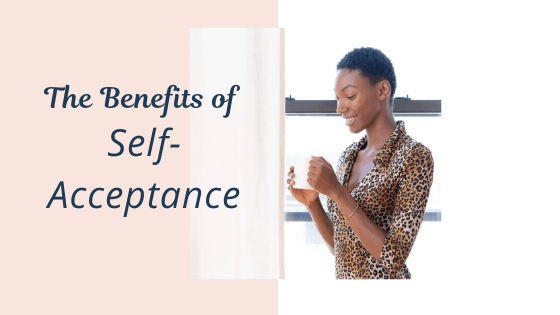
There are many benefits to self-acceptance. Some of these are:
Increases Happiness
Sometimes we can make ourselves unhappy by the way we think. Our fears and worries about how others see us or judge us cause a lot of unnecessary suffering. We all want to be loved and accepted, but we don’t always get that love from other people. So if you are able to give yourself the unconditional acceptance, then no matter what happens with other people in your life (and it might not always be positive), you will still have your own self-acceptance to fall back on for inner happiness and peace of mind.
Business Benefits
Self-acceptance will help you in business as well. If you accept who you are now, then it becomes easier for others to accept who you are too – even if they haven’t known you for very long. When people feel accepted, they are more likely to trust you and want to do business with you.
Leads to Greater Confidence
When you accept yourself, you also develop greater confidence in your abilities and judgments. You are not so worried about what others think of you, because you know that you are okay just the way you are. This leads to a more relaxed and open attitude in interactions with other people, which can only lead to better relationships.
Makes You More Likable
People like others who are comfortable in their own skin. When you accept yourself, it shows that you have confidence and self-respect. This makes you more attractive to others and can lead to better friendships and romantic relationships. It also makes you more likely to be successful in life, because people are drawn to those who have a positive attitude and a good self-image.
Makes You More Authentic
When you accept yourself, you are also accepting all of your thoughts, feelings, and experiences. This means that you are not pretending to be someone that you’re not. You can relax and be yourself around others because you know that they will like and accept you for who you are. This is the key to having genuine relationships with other people – ones where both parties feel comfortable being themselves. It is also a key to happiness because it is only when we are authentic that we can truly be happy.
Conclusion
Self-acceptance is the key to happiness. Sometimes, we find ourselves holding onto our past, thinking that it defines who we are today. We think that people will only like us if we become the best or most beautiful version of ourselves. This is not true at all. People will love you for who you are because when they look in your eyes, they see a person with a good heart and soul – someone who’s willing to go through life accepting themselves wholeheartedly despite their shortcomings and imperfections.
You cannot be happy if you don’t learn to accept yourself first. One should always be kind to yourself, and never put yourself down. You are unique and special in your own way, so start living life the way you want to – with self-acceptance at the core of your being. You can also contact us for more information related to these topics as well.
A Word From Therapy Mantra
Your mental health — Your psychological, emotional, and social well-being — has an impact on every aspect of your life. Positive mental health essentially allows you to effectively deal with life’s everyday challenges.
At TherapyMantra, we have a team of therapists who provide affordable online therapy to assist you with issues such as depression, anxiety, stress, workplace Issues, addiction, relationship, OCD, LGBTQ, and PTSD. You can book a free therapy or download our free Android or iOS app.
